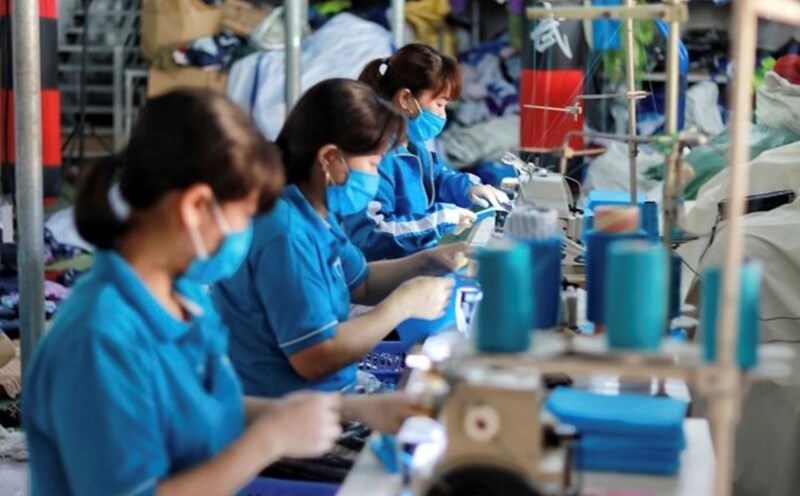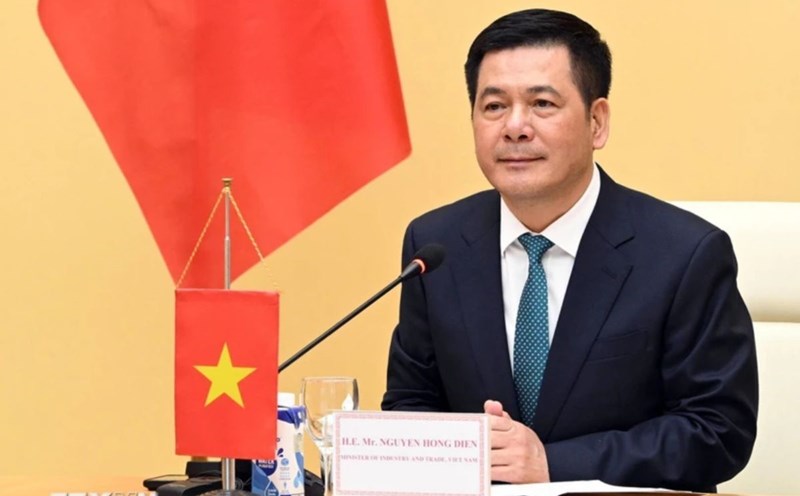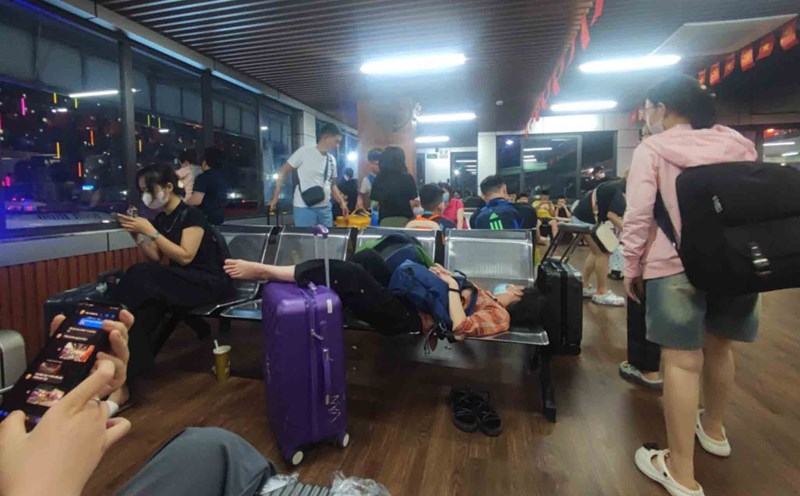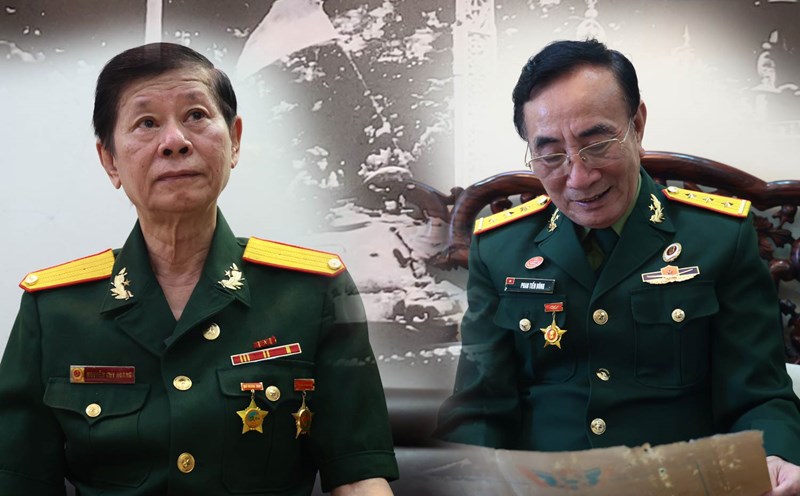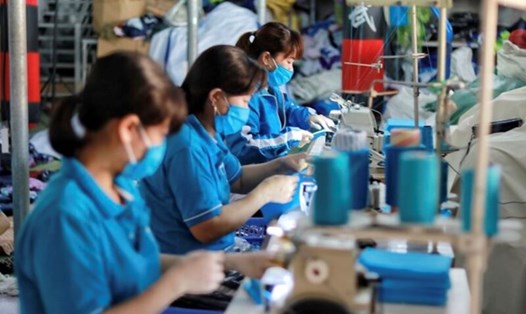After visiting Vietnam 3 weeks before the 50th anniversary of the Liberation of the South and National Reunification (April 30, 1975 - April 30, 2025), Mr. craig McNamara - son of the late US Secretary of Defense Robert McNamara, who was considered the "chief architect" of the war in Vietnam - posted in USA Today, expressing his vision, hearing and feelings about the country in which his father fought.
Mr. cra cra cra McNamara wrote: "I recently had a trip to Vietnam, where I pledged to continue supporting efforts to eliminate unexploded bombs and mines - which still kill and disable children. In that way, this visit brought me healing.
On April 30, 1975, the most dividing war in American history ended. At least, we thought so.
The painful separations of that war are very personal to me. I am the son of the late Secretary of Defense Robert S. McNamara - who served under Presidents John F. Kennedy and Lyndon B. Johnson.
Although I have always loved my father, both during the war years and after, at that time, I was so pained that I dropped out of college and fled by motorbike - traveling more than 9,500 km through Latin America. I have lived in captivity in Chile and Mexico for more than 2 years, hoping to find some peace in the face of the scourge of knowing my father was deeply involved in an international war.
I do not evade military service, although I do not disregard tens of thousands of men and soldiers of military age who have applied for asylum in Canada or Sweden. My mother and I both suffered from severe stomach ulcers - which caused me to be dismissed from military service.
In recent years, I have realized that, for the Vietnamese people, the war has never really ended. The millions of unexploded bombs and mines we left behind continue to kill and disable children and farmers across the country.
I just had a 3-week trip to Vietnam to better understand why the US was involved in this mistaken war, and why an unchanged but creative armed force could defeat the most powerful army in the world - the army commanded by my father.
"Fog of War" and my father, Robert S. McNamara
I was invited by a Vietnamese film crew to participate in a documentary, partly based on my book Because Our Fathers Lied: A Memoir of Truth and Family, From Vietnam to Today.
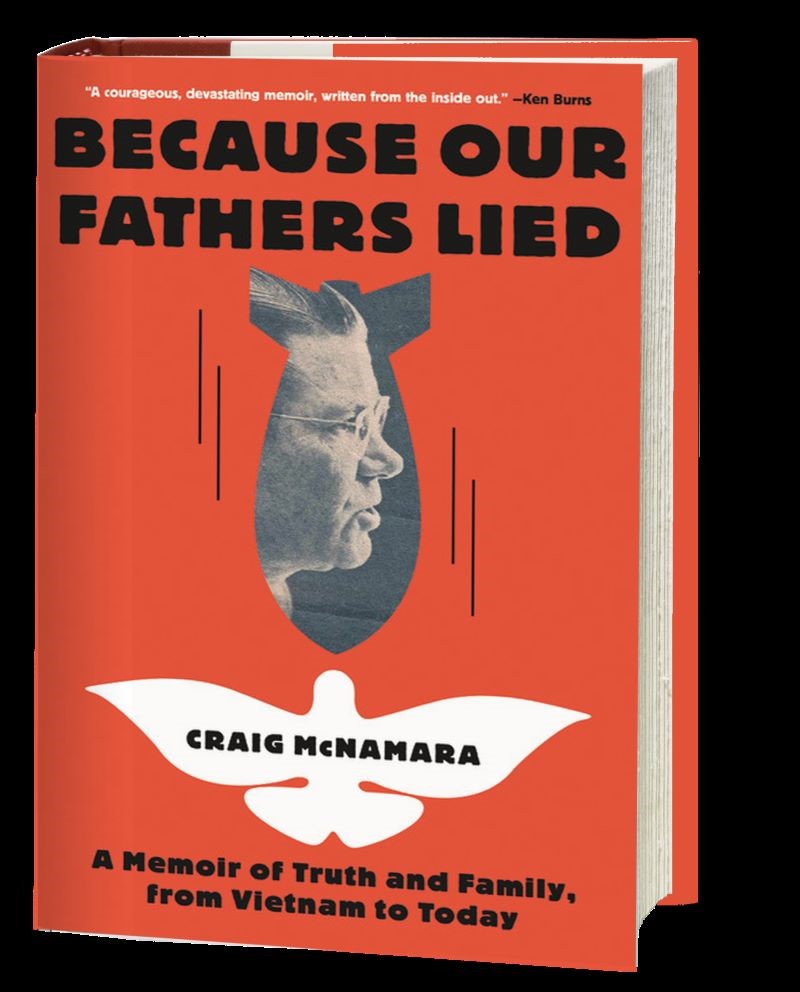
Before coming to Vietnam, the film crew filmed me talking with 4 famous American historians, along with some artists, veterans and American poets.
I also interviewed director Errol Morris, who won an Oscar for his 2003 documentary The fog of War with my father. I also talked to a former senior assistant to my father in the Pentagon, and veteran journalist Philip Taubman, co-author of the biography of my father scheduled to be published later this year.
They all agreed with the assessment of historian Frances Fitzgerald in the 1972 book Fire in the Lake that the US leaders at that time did not try to learn about the history and culture of the Vietnamese people - people who had fought for independence against powerful forces for thousands of years...
When I arrived in Vietnam, I met the first soldier to discover American soldiers making landfall on Da Nang beach in April5.
I had lunch with an American official - the son of a US Navy officer who was present during the first landings.
I met Vietnamese men and women who were teenagers during the war - they were on patrol missions in the countryside, guarding the US soldiers and giving warnings to their families about bombings.
In the last days of the trip, I met two old men, one old man, one old woman, who had made an important contribution to the failure of one of my father's most notorious military strategies.
McNamara electronic fence - one of the countless failures of the US in Vietnam
That strategy is called the McNamara Electronic Fence - a strip of land running across Central Vietnam with a series of electronic sensors installed to detect the activities of the opponent, especially the transportation of weapons.
My father believes that if he applies the strategic analysis that was successful in World War II and at Ford Group, the US can win...
But the two farmers - that warrior - showed me how they hung up aluminum plates, cups and water bottles, stuffed them with live rat and live insects, causing confusion in the sensing system. As a result, the US forces deployed there could not detect weapons but only destroyed harmless animals.
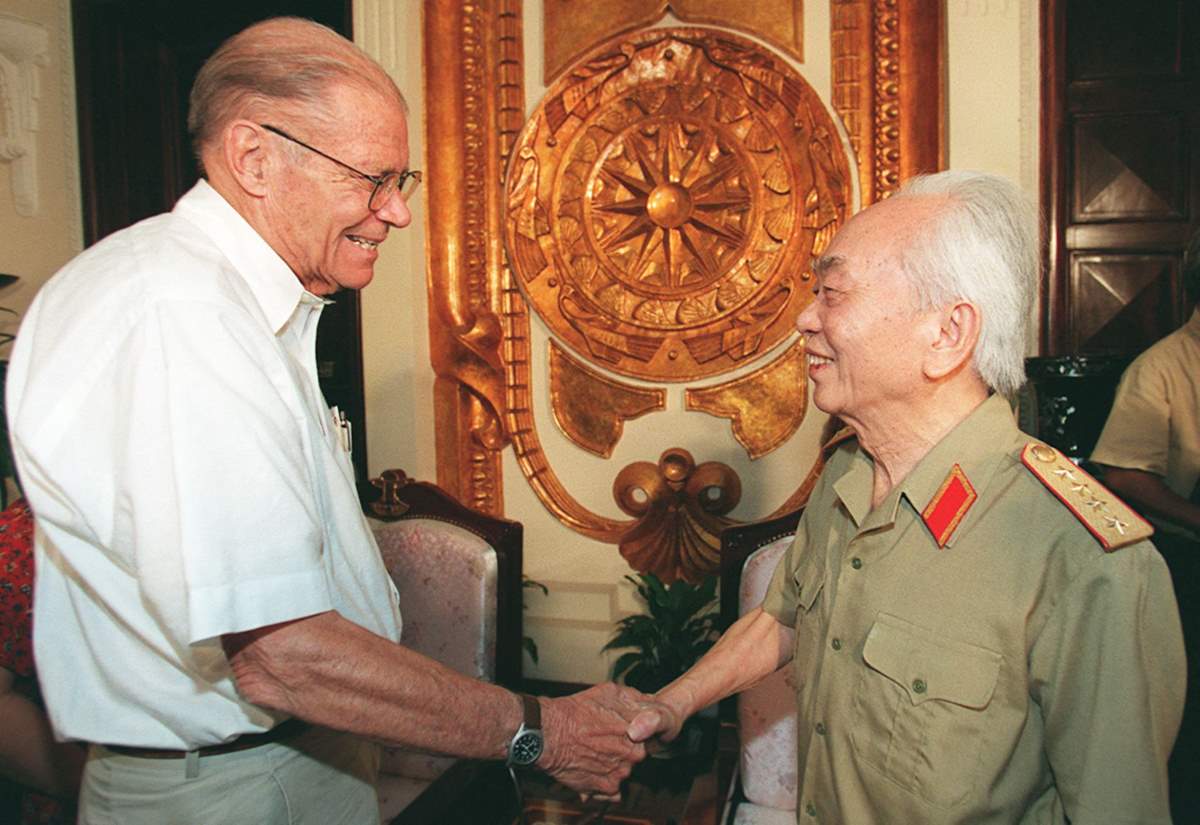
It took Europe just two years to start rebuilding after World War II. But it took more than two decades after the war for the US to establish diplomatic relations with Vietnam, then began searching for missing soldiers and resolving war heritage.
Unfortunately, when those humanitarian and mediation programs have just begun to produce results, they have suddenly stalled, adding to the difficulties of a country that is now a key partner of the United States.
During the trip, I pledged to continue supporting efforts to eradicate the war heritage that is still killing and injuring children 50 years after the war ended. In that way, the trip and participating in the documentary brought me a deep healing.
I wish my father were alive to read my memoir and come back here with me. Like many other American veterans, he has been haunted to the end of his life by what we have done in Vietnam."
VTV Special - "The Struggling of the Will" about Mr. cra cra cra cra McNamara's journey to learn about the war that his father - US Secretary of Defense Robert McNamara during the period of 1961-1968, one of the people who directly operated and commanded in Vietnam - aired two episodes at 8:10 p.m. on April 25 and 30, 2025.

